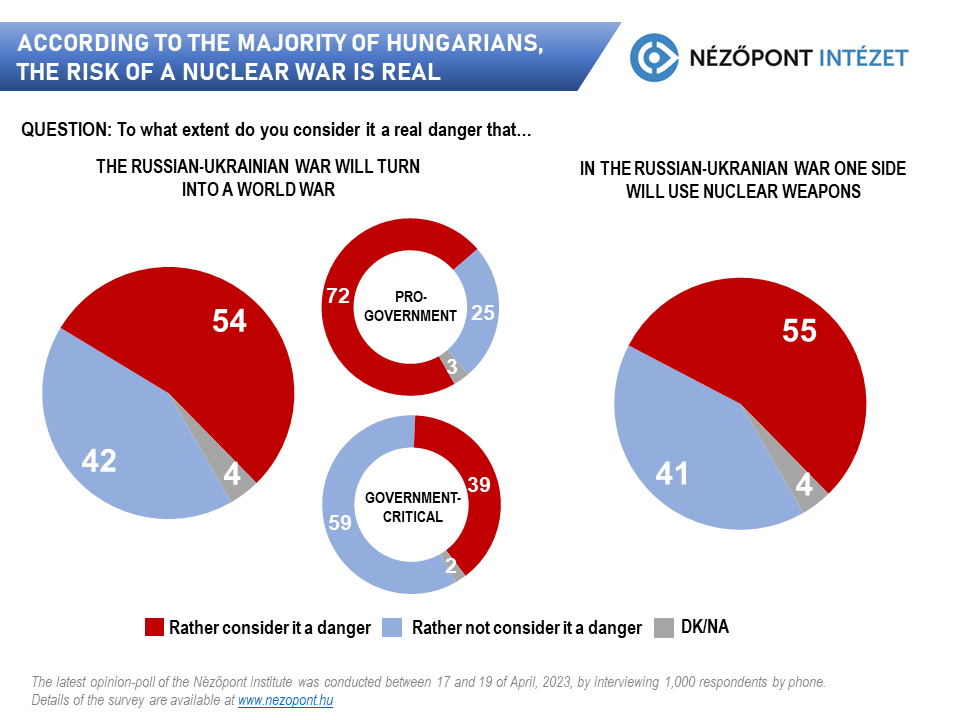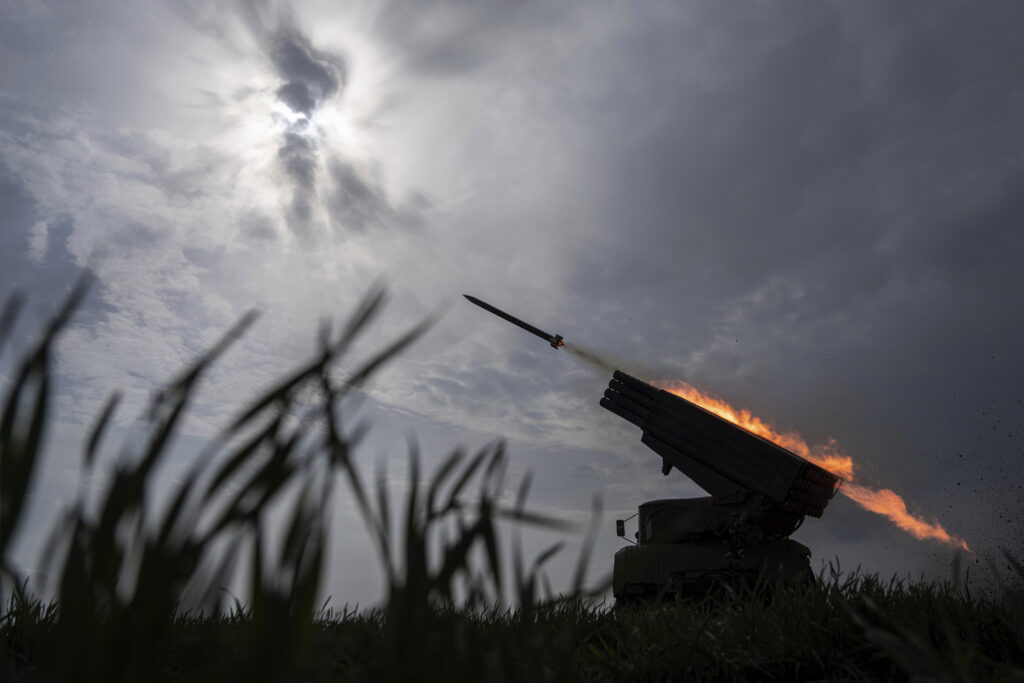According to a recent survey conducted by the Nézőpont Institute, the majority of Hungarians (54 percent) consider it a real danger that the Russian-Ukrainian war could escalate into a third world war. Even more people (55 percent) think that one of the warring sides could even deploy nuclear weapons if the war continues. 39 percent of opposition voters think that the threat of a third world war is real, while 41 percent believe that the use of nuclear weapons is a real danger.
When the Russian-Ukrainian war broke out more than a year ago, many people thought that the war would end soon. Since then, however, only steps have been taken that have served to escalate the war. Russia has ordered a partial mobilisation, and now the European Union is not only imposing economic sanctions, but also supplying more and more lethal weapons to the war zone. It is therefore an important question how Hungarians perceive the consequences of continuing the war in this situation.

According to the survey of the Nézőpont Institute, the absolute majority of Hungarian voters (54 percent) consider it a real threat that the conflict in our neighbourhood could escalate into a global war. In contrast, 42 percent of voters are rather optimistic. Three-quarters of pro-government voters (72 percent) believe that by the continuation of the Russian-Ukrainian war we risk the outbreak of another world war, while a quarter (25 percent) are rather optimistic and do not see this as a real threat. More than a third of opposition voters (39 percent) also think that the risk of a world war is real, but the majority (59 percent) do not believe that such an escalation is possible.
Given that Russia and several arms supplying Western countries are also regarded as nuclear powers, and weapons containing depleted uranium have already appeared in the war zone, the possible use of nuclear weapons is also a critical concern. The majority of Hungarians (55 percent) believe that there is a risk of deployment of nuclear weapons if of the Russian-Ukrainian war continues, while 41 percent do not consider this risk to be real.
Those who think that the Russian-Ukrainian war could escalate into a world war are significantly more concerned about the use of nuclear weapons (81 percent), while only 16 percent are afraid of a world war without nuclear weapons. Among those who are not worried about a global conflict, the majority (77 percent) are not worried about the use of nuclear weapons, while 21 percent think it is possible that nuclear weapons could be used in the local conflict without the risk of a world war.
Nearly three-quarters (70 percent) of voters who agree with the work of the pro-peace prime minister consider the use of nuclear weapons to be a real threat, while a quarter (28 percent) are confident that it is not. But opposition voters are even more divided on the issue. 41 percent of them are afraid of the use of nuclear weapons, and 55 percent believe that the conflict in Ukraine will not turn into a nuclear war.
Methodology
The latest opinion-poll of the Nézőpont Institute was conducted between 17 and 19 of April, 2023, by interviewing 1,000 respondents by phone. For all surveys, the sample is representative of the adult population (18 years and older) by gender, age, region, type of settlement and education. In case of a sample size of 1000 respondents and a confidence level of 95 percent, the sampling error is ± 3.16 percent. Respondent base = Hungarian voters, respondents who are willing to vote in the elections.

